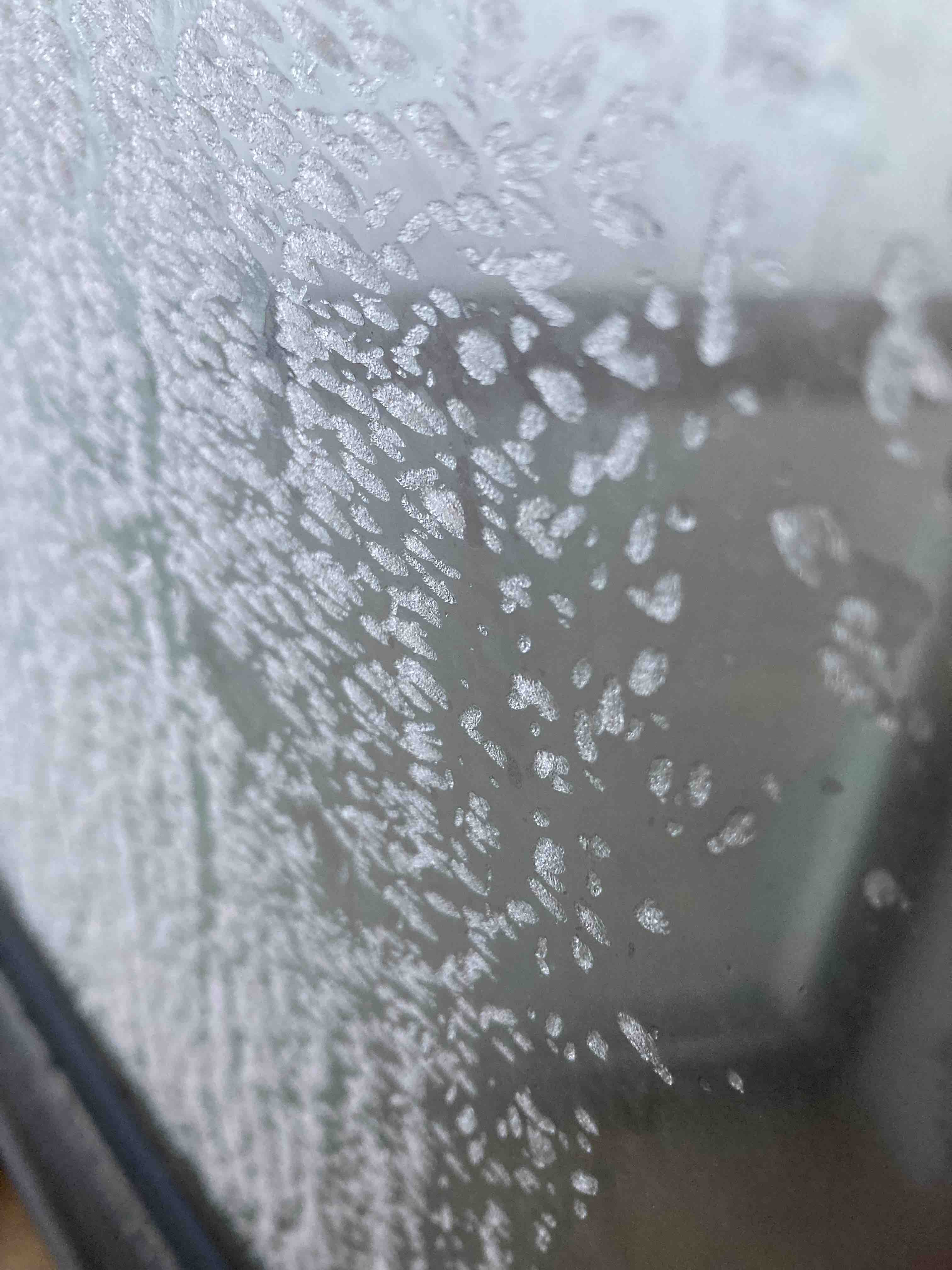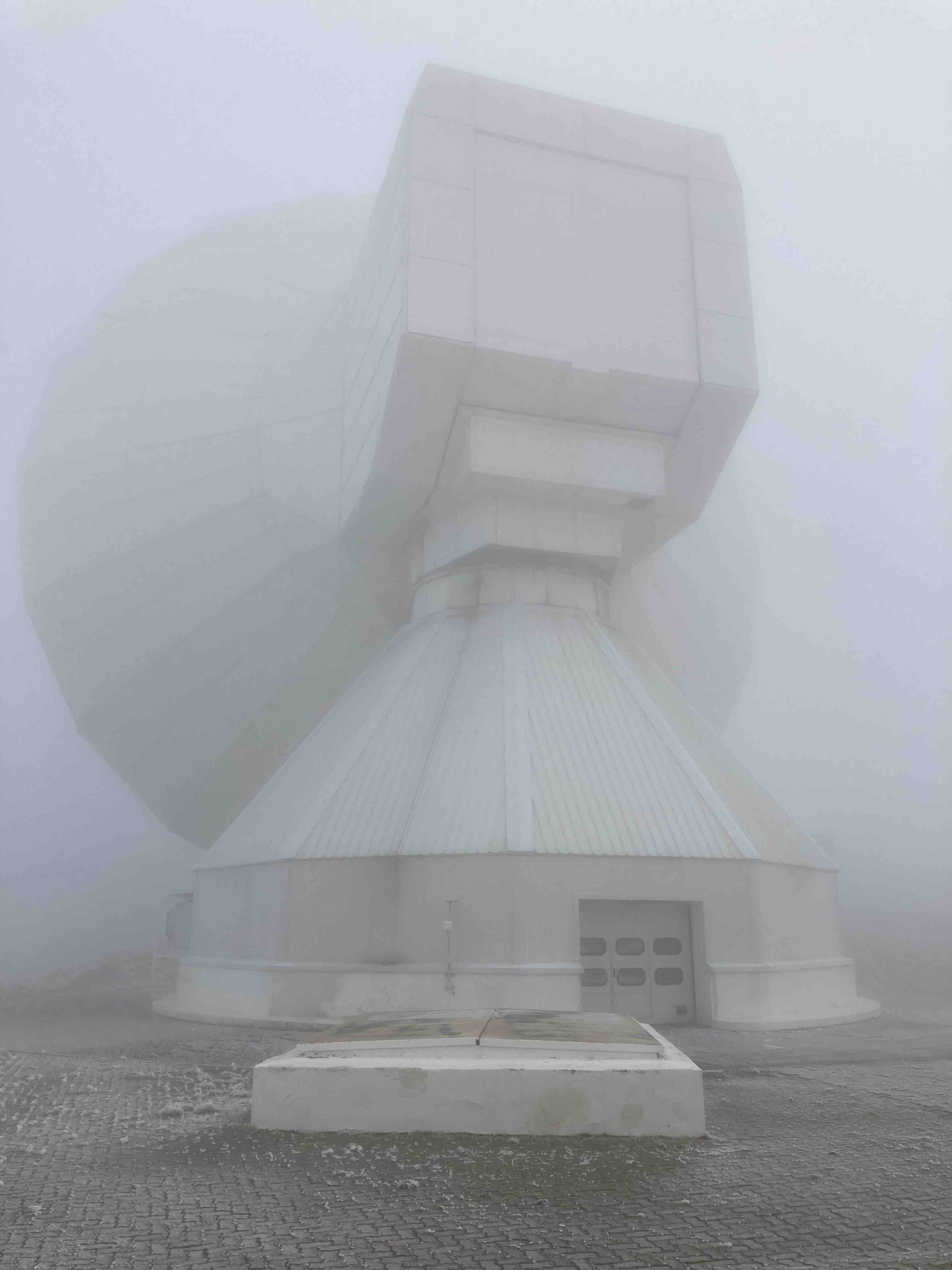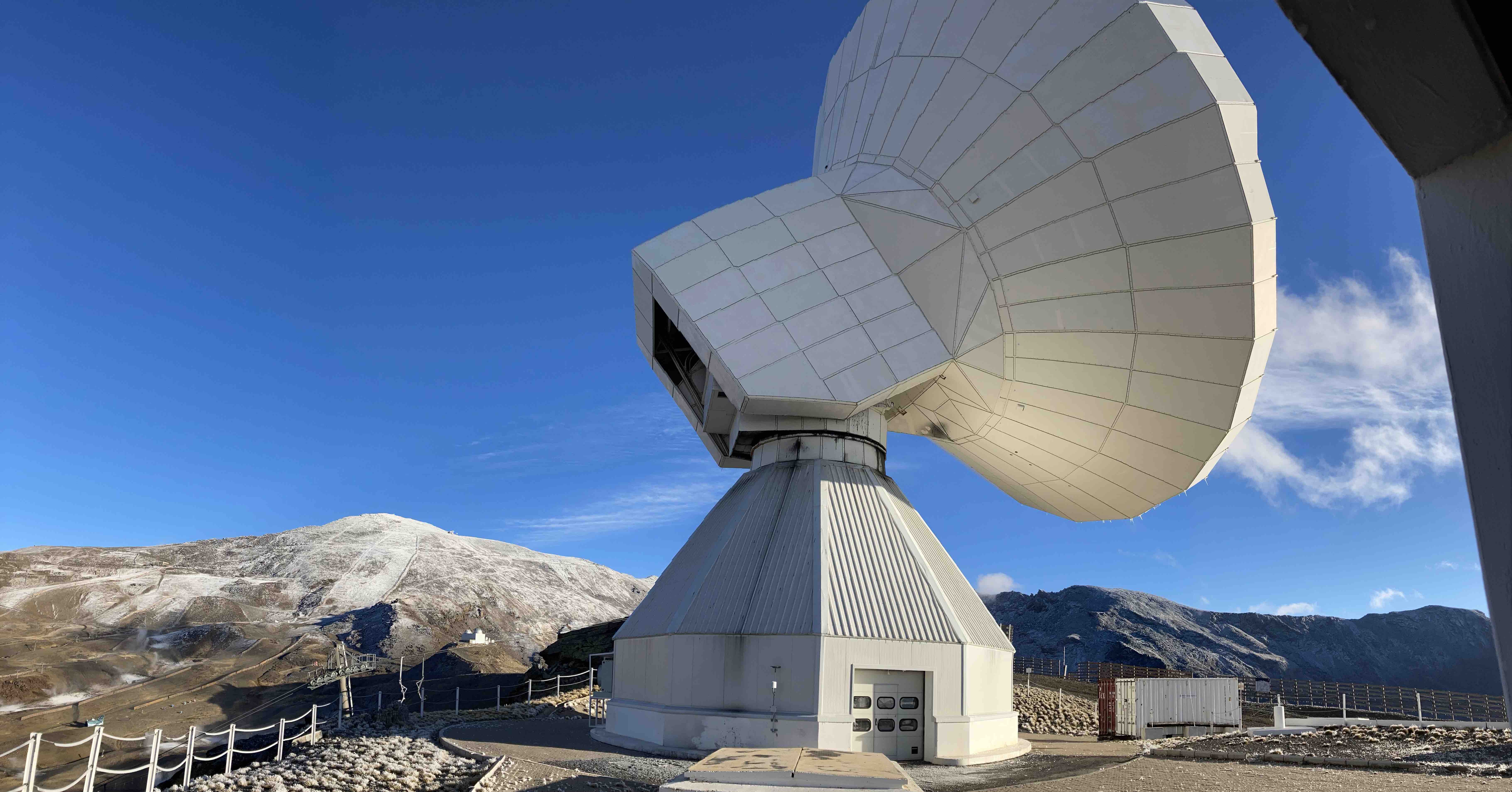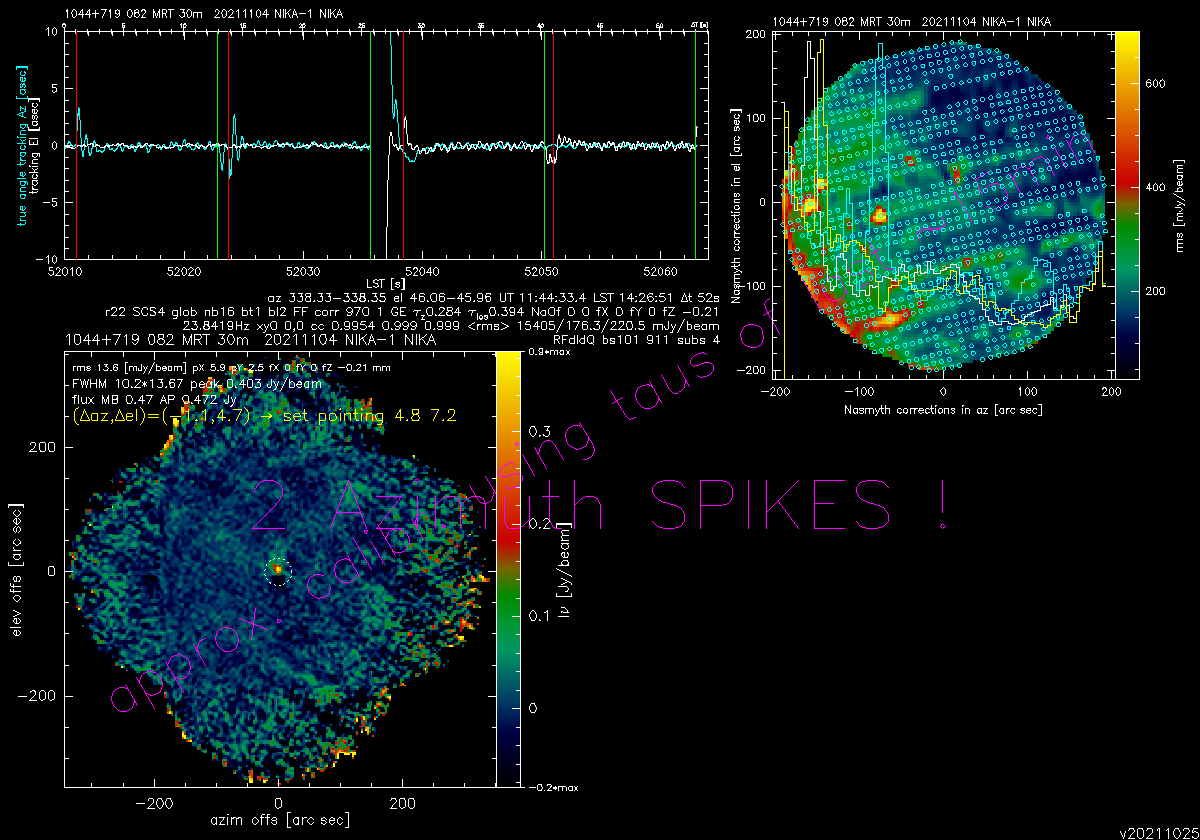|
Size: 7738
Comment:
|
Size: 10288
Comment:
|
| Deletions are marked like this. | Additions are marked like this. |
| Line 23: | Line 23: |
---- /!\ '''Edit conflict - other version:''' ---- |
|
| Line 26: | Line 24: |
---- /!\ '''Edit conflict - your version:''' ---- 15:00 - 21:00 Isabelle and Karine: Tau range is 0.2 - 0.3 at the beginning of the shift. The noise trace behavior is generally similar as the previous shift and the number of bad pixels are 58/4/58 for Ar1/Ar2/Ar3, respectively. After restarting the NIKA2 acquisition at ~48 Hz, observations for project 086-21 (ARSENAL) start. The opacity was better than the predictions. We did 2 repetitions on A2163 and 1 on A2218. Tau was < 0.3. Then we tried to do a skydip but the telescope control system failed. We experienced several stuck scans and all measurements in the scan range 79-89 should be discarded. The control system problem was resolved at 19:00 (UT) (~1hr lost), then focus and pointing. We switched to project 035-21 and observed 1 repetition on B335. ---- /!\ '''End of edit conflict''' ---- |
|
| Line 49: | Line 42: |
| 21:00 - 03:00 Philippe and Michael: Fairly good weather conditions (tau_225 between ~0.1 and ~0.3, with some fluctuations during the shift); no technical problem. Observed project 035-21 (source B335) for 1 hour. Then switched to project 018-21 for ~ 2.5 hour (6 maps) until the Perseus sources of this project reached an elevation > 75 deg. Subsequently observed sources B213 and B211 of project 122-16 (GASTON) for ~ 1.3 hour until they also reached a very high elevation. Then did some calibration observations on Uranus: 1 calib_1scan [20211105s10] + 1 beammap1scan99sub [20211105s11]. Ended with a skydip [20211105s17] (overlap with the next shift). |
|
| Line 50: | Line 45: |
03:00 - 09:00 Golshan: The weather was well throughout my shift. Apart from a few spikes, tau kept decreasing gradually (converging to ~0.15), so I could carry on with observing IMEGIN galaxies. After 2 repetitions on NGC628, which was going to set, I did a skydip (20211105s17, left from the previous shift). Then I completed 5 repetitions on NGC3521 and 8 repetitions on NGC4321 to the end of the shift. I repeated the pointing every hour and corrected the focus every ~2.5 hours. In the end, I did a calib_1scan on Mercury and another skydip (see scans in following report block) before handing it over to the AoD. 09:00 - 15:00 Ioannis: The weather conditions were very good for the first half of the shift (tau225 ~0.15) and there was some slight increase in tau with small spikes up to ~0.35 in the second half of the shift. The spikes were most likely caused by small clouds passing in the direction of the taumeter. In general the sky was very clear and only distant clouds were sometimes visible at low elevations (<30º). At the transition from the previous shift, I did a skydip (20211105s62) and then pointing and focus on Mercury along with a calib_1scan (20211105s72). Baseline variations at <2 Jy/beam at 2mm. Then I observed project 083-21 (J0730+4811) for about 1 hour. After another pointing and focus on Mercury, I started observing project 084-21 for about 2 hours (2 repetitions on AK4-224). During the next pointing and focus on Mercury, the weather conditions slightly degraded (baseline variations ~3 Jy/beam @ 2mm and ~7-8 Jy/beam @ 1mm). Then a calib_1scan on Mercury (20211105s122) and another skydip (20211105s124). Afterwards the weather became a bit unstable (small clouds around the telescope), so I changed to project 045-21 and observed the field GP027_XXX. At the end of the shift the tau225 again stabilized below 0.2 15:00 - 21:00: Very good shift! Project 045-21 was being observed at the beginning of our shift (GP027_XXX) until 15:55 (overlap from previous shift). Tau was good and stable (< 0.2) so we switched to project 035-21 (3 repetitions on B335). At 18:00 we did a skydip [20211105s146] and focus (very good) on the nikas-21 account. The pointing were very good too (17x17”). We then continued observing project 035-21 (4 repetitions on B335). The opacity was very good (~0.16) and stable (<0.2) up to 20:00 and with spikes < 0.25 for the last hour. 21:00 - 03:00 Miren, Chenlin and Frédéric: In the first part of the night there were spikes in the tau values (0.2 to 0.4). We have done a beammap (20111105s188)+ calib (20111105s187) on Uranus. Then, we have done 2 repetitions on ACTJ2302 of 199-16. We have done a skydip (20111105s199). Then move to 007-21 … but we encounter a snow episode! The antenna was parked and the shift is over. |
Daily Reports
Because of COVID-19, only IRAM staff is allowed to observe on-site until new notice.
Contents
Nov 2nd, Tuesday
21:00 - 03:00 Angel, Ioannis: After weekly maintenance, telescope was parked due to bad weather conditions. Very high tau and variations fog building up around the telescope.
Nov 3rd, Wednesday
03:00 - 09:00 Ioannis: The bad weather conditions continued throughout the night with fog, strong winds and icy rain (!). Operator turned on the deicing mechanism to make sure that we can get back to observing conditions faster as the weather improves. [Note that it will take several hours for the telescope to relax after switching off de-icing. (CK)] Conditions are expected to improve later in the morning..
Some snapshots from this morning:


09:00 - 15:00 Ioannis: Around 09:30 (UT) the weather conditions improved (tau ~0.26) and we started with the NIKA2 observations for the 2nd pool week. With the telescope at horizontal coordinates [140,40], the NIKA2 acquisition was initiated at the usual frequency (~24 Hz). The initial tuning of the resonances resulted in bad pixel numbers of 41/5/42 for Ar1/Ar2/Ar3, respectively. The noise traces were inspected and found to be very steep and dominated by the low frequencies, possibly due to the still unstable weather. No feature was found around 1 Hz, so there doesn't seem to be any issue with the PT. Then Mercury was used for initial pointing and focus. The baseline fluctuations were about 6-15 Jy/beam (rms) @ 2mm and about 30 Jy/beam (rms) @ 1mm. Beam size was 17.4" x 18.8" @ 2mm. With relatively stable baselines, a calib_1scan was performed on Mercury (scan 20211103s14) and a skydip (scan 20211103s11). Afterwards, start of observations for the DDT project E03-20. After pointing on 1226+023, we did 2 repetitions of the OTFmaps of the target source. Around 13:00 (UT) the weather conditions deteriorated, the beam broadened to about 19" @ 2mm and 13-14" @ 1mm and the baseline variations significantly increased (+/- 20 Jy/beam @ 2mm and +/- 40 Jy/beam at 1mm). Therefore, we continued with the time filler project 045-21 (during tau variations 0.3 - 0.5) until 14:30 (UT). At 13:55 (UT), "level 6: attente" was selected at the cryostat window, it was at "level 1: auto" until then.
15:00 - 21:00 Isabelle and Karine: Tau range is 0.2 - 0.3 at the beginning of the shift. The noise trace behavior is generally similar as the previous shift and the number of bad pixels are 58/4/58 for Ar1/Ar2/Ar3, respectively. After restarting the NIKA2 acquisition at ~48 Hz, observations for project 086-21 (ARSENAL) start. The opacity was better than the predictions. We did 2 repetitions on A2163 and 1 on A2218. Tau was < 0.3. Then we tried to do a skydip but the telescope control system failed. We experienced several stuck scans and all measurements in the scan range 79-89 should be discarded. The control system problem was resolved at 19:00 (UT) (~1hr lost), then focus and pointing. We switched to project 035-21 and observed 1 repetition on B335.
The sky is finally getting clearer:

21:00 - 03:00 Philippe and Michael: Very good weather conditions (stable tau ~ 0.2 throughout the shift). Obtained several maps for project 018-21. Then did some calibrations (2 skydips [20211104s5 and 20211104s7], 1 calib_1scan [20211104s3] + 1beammap1scan99sub h [20211104s4] on Uranus) when the sources of 018-21 were too high in elevation. Finally, switched to project 007-21 and launched one set of maps (@mapping_1390_v2) for this project at the end of shift. [Had to re-launch the script after the scan got stuck once]
Nov 4th, Thursday
03:00 - 09:00 Golshan: We were blessed with very stable weather, with tau varying around 0.2 and rms noise of array 2 in range 3-5 Jy/beam. After a calib1_scan [20211104s14] and beammap [20211104s15] on Uranus, I started observing NGC3521 and I could finish 13 repetitions of its script. I renewed the pointing every hour and corrected the focus once in the beginning and once in the middle of the shift. May the good weather continue! [It was reported that PIIC monitor for arrays 1 and 3 got stuck a couple of times, possibly due to a faulty scan (header?). The problem was resolved by restarting the monitors. (IM)]
09:00-15:00 Yali, Ioannis: Many thanks for the nice training for the observing with NIKA2 by Ioannis at the beginning of the shift. After the pointing and focus on Mercury, we did calib_1scan with a scan number of 20211104s69, and after which, we did a scan of skydip [20211104s70]. The weather was very good and stable with Tau225 of ~0.2. Then we moved to the project 083-21. We observed two targets (J1530+1049 and J1110+6102) of project 083-21 with very stable sky conditions (baseline variations ~0.5 Jy/beam at 2mm). During the last few scan on target J1110+6102, the weather became a little bit unstable (clouds around the telescope; baseline variations > 20 Jy/beam at 2mm). So after the observations on target J1110+6102, we decided to change to project 045-21. Before the project 045-21, we corrected the pointing and focus on 1226+023. The Tau225 was steadily increasing up to ~0.35-0.4. Then we observed targets in the fields GP005_XXX and GP006_XXX.
Ioannis: It was reported and confirmed that array 1 shows a persistent feature in the lower left part of the noise distribution (see plot attached below) with noise levels x2 or x3 compared to the rest of the array. I tried to retune NIKA2 for a few times but the feature didn't go away. It appears in all scans of array 1 at the same position. Any ideas/suggestions are most welcome.
15:00 - 21:00 Karine and Isabelle: At the beginning of the shift project 045-21 was being observed. Tau increased during the shift to an average of 0.4 with peaks at 0.7. We continued to observe project 045-21 up to 17:30. Then during sunset it was hard to get a good focus and we had to make several tries. We did a skydip (20211104s134). Before being able to get a good focus it started to rain, around 18:45. The weather finally got much better around 20:00 and we started observing again at 20:45 project 035-21 and did one rep on B335 with tau < 0.1!
21:00 - 03:00 Philippe and Michael: Fairly good weather conditions (tau_225 between ~0.1 and ~0.3, with some fluctuations during the shift); no technical problem. Observed project 035-21 (source B335) for 1 hour. Then switched to project 018-21 for ~ 2.5 hour (6 maps) until the Perseus sources of this project reached an elevation > 75 deg. Subsequently observed sources B213 and B211 of project 122-16 (GASTON) for ~ 1.3 hour until they also reached a very high elevation. Then did some calibration observations on Uranus: 1 calib_1scan [20211105s10] + 1 beammap1scan99sub [20211105s11]. Ended with a skydip [20211105s17] (overlap with the next shift).
Nov 5th, Friday
03:00 - 09:00 Golshan: The weather was well throughout my shift. Apart from a few spikes, tau kept decreasing gradually (converging to ~0.15), so I could carry on with observing IMEGIN galaxies. After 2 repetitions on NGC628, which was going to set, I did a skydip (20211105s17, left from the previous shift). Then I completed 5 repetitions on NGC3521 and 8 repetitions on NGC4321 to the end of the shift. I repeated the pointing every hour and corrected the focus every ~2.5 hours. In the end, I did a calib_1scan on Mercury and another skydip (see scans in following report block) before handing it over to the AoD.
09:00 - 15:00 Ioannis: The weather conditions were very good for the first half of the shift (tau225 ~0.15) and there was some slight increase in tau with small spikes up to ~0.35 in the second half of the shift. The spikes were most likely caused by small clouds passing in the direction of the taumeter. In general the sky was very clear and only distant clouds were sometimes visible at low elevations (<30º). At the transition from the previous shift, I did a skydip (20211105s62) and then pointing and focus on Mercury along with a calib_1scan (20211105s72). Baseline variations at <2 Jy/beam at 2mm. Then I observed project 083-21 (J0730+4811) for about 1 hour. After another pointing and focus on Mercury, I started observing project 084-21 for about 2 hours (2 repetitions on AK4-224). During the next pointing and focus on Mercury, the weather conditions slightly degraded (baseline variations ~3 Jy/beam @ 2mm and ~7-8 Jy/beam @ 1mm). Then a calib_1scan on Mercury (20211105s122) and another skydip (20211105s124). Afterwards the weather became a bit unstable (small clouds around the telescope), so I changed to project 045-21 and observed the field GP027_XXX. At the end of the shift the tau225 again stabilized below 0.2
15:00 - 21:00: Very good shift! Project 045-21 was being observed at the beginning of our shift (GP027_XXX) until 15:55 (overlap from previous shift). Tau was good and stable (< 0.2) so we switched to project 035-21 (3 repetitions on B335). At 18:00 we did a skydip [20211105s146] and focus (very good) on the nikas-21 account. The pointing were very good too (17x17”). We then continued observing project 035-21 (4 repetitions on B335). The opacity was very good (~0.16) and stable (<0.2) up to 20:00 and with spikes < 0.25 for the last hour.
21:00 - 03:00 Miren, Chenlin and Frédéric: In the first part of the night there were spikes in the tau values (0.2 to 0.4). We have done a beammap (20111105s188)+ calib (20111105s187) on Uranus. Then, we have done 2 repetitions on ACTJ2302 of 199-16. We have done a skydip (20111105s199). Then move to 007-21 … but we encounter a snow episode! The antenna was parked and the shift is over.
Nov 6th, Saturday
Nov 7th, Sunday
Nov 8th, Monday

